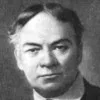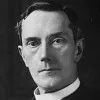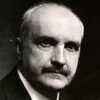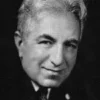It was a characteristic of Jean Valjean that he might have been said to carry two bags: in one he kept his saintly thoughts, in the other the formidable talents of a convict. He dug into one or the other, depending on circumstances.
[Jean Valjean avait cela de particulier qu’on pouvait dire qu’il portait deux besaces; dans l’une il avait les pensées d’un saint, dans l’autre les redoutables talents d’un forçat. Il fouillait dans l’une ou dans l’autre, selon l’occasion.]Victor Hugo (1802-1885) French writer
Les Misérables, Part 2 “Cosette,” Book 5 “Dark Hunt, Mute Mutts,” ch. 5 (2.5.5) (1862) [tr. Donougher (2013)]
(Source)
(Source (French)). Alternate translations:Jean Valjean had this peculiarity, that he might be said to carry two knapsacks; in one he had the thoughts of a saint, in the other the formidable talents of a convict. He helped himself from one or the other as occasion required.
[tr. Wilbour (1862)]Jean Valjean had one peculiarity, that he might be said to carry two wallets: in one he had the thoughts of a saint; in the other the formidable talents of a convict, and he felt in one or the other as opportunity offered.
[tr. Wraxall (1862)]Jean Valjean had this peculiarity, that he carried, as one might say, two beggar's pouches: in one he kept his saintly thoughts; in the other the redoubtable talents of a convict. He rummaged in the one or the other, according to circumstances.
[tr. Hapgood (1887)]Jean Valjean had the singularity that he might be said to be doubly endowed, on the one side with the aspirations of a saint, on the other with the formidable talents of a criminal. He could draw on either as the case required.
[tr. Denny (1976)]Jean Valjean had this trait, that he might be said to carry two knapsacks -- in one he had the thoughts of a saint, in the other the impressive talents of a convict. He helped himself from one or the other as occasion required.
[tr. Wilbour/Fahnestock/MacAfee (1987)]
Quotations about:
saint
Note not all quotations have been tagged, so Search may find additional quotes on this topic.
Saint Luke was a Saint and a Physitian, yet is dead.
George Herbert (1593-1633) Welsh priest, orator, poet.
Jacula Prudentum, or Outlandish Proverbs, Sentences, &c. (compiler), # 1008 (1640 ed.)
(Source)
To be a saint is the exception. To be a good man is the rule. Err, weaken and sin, but be among the good.
[Être un saint, c’est l’exception ; être un juste, c’est la règle. Errez, défaillez, péchez, mais soyez des justes.]Victor Hugo (1802-1885) French writer
Les Misérables, Part 1 “Fantine,” Book 1 “An Upright Man,” ch. 4 (1.1.4) (1862) [tr. Donougher (2013)]
(Source)
Part of the short summary of Bishop Myriel's teachings. (Source (French)). Alternate translations:To be a saint is the exception; to be upright is the rule. Err, falter, sin, but be upright.
[tr. Wilbour (1862); Wilbour / Fahnestock / MacAfee (1987)]To be a saint is the exception, to be a just man is the rule. Err, fail, sin, but be just.
[tr. Wraxall (1862)]To be a saint is the exception; to be an upright man is the rule. Err, fall, sin if you will, but be upright.
[tr. Hapgood (1887)]To be a saint is to be an exception; to be a true man is the rule. Err, fail, sin if you must, but be upright.
[tr. Denny (1976)]
I told her that what made being alive almost worthwhile for me was all the saints I met almost anywhere, people who were behaving decently in an indecent society.
Kurt Vonnegut, Jr. (1922-2007) American novelist, journalist
Letter (1992-10-16) to Robert Maslansky
(Source)
Phrases used in a number of places by Vonnegut, often as his reply when a woman wrote him to ask if it were right to bring a child into a world as bad as this one; he then encouraged his readers or listeners to become a saint for that child. He also used the phrase to describe the underlying theme of his writing.
Other variants:I replied that what made being alive almost worthwhile for me was the saints I met, people behaving unselfishly and capably. They turned up in the most unexpected places.
[Timequake, ch. 62 (1997)]I replied that what made living almost worthwhile for me were the saints I met. They could be anywhere. They were people who behaved decently in an indecent society.
[Kevin Alexander Bacon, ed., At Millennium's End: New Essays on the Work of Kurt Vonnegut, Foreword (1998-11-11) (2001)]What makes life worth living are the saints I meet -- they can be long-time friends or someone I meet on a street. They find a way to behave decently in an indecent society.
["Vonnegut Unbound," Interview by Christopher R. Blazejewski, The Harvard Crimson (2000-05-12)]I replied that what made being alive almost worthwhile for me, besides music, was all the saints I met, who could be anywhere. By saints I meant people who behaved decently in a strikingly indecent society.
[Lecture (2003-09-22), University of Wisconsin, Madison; reprinted in "Knowing What's Nice," In These Times (2003-11-06)]What makes life worth living are the saints. You meet saints everywhere. They can be anywhere. They are people behaving decently in an indecent society.
[Frequently quoted version]
I don’t believe any man ever existed without vanity, and if he did he would be an extremely uncomfortable person to have anything to do with. He would, of course, be a very good man, and we should respect him very much. He would be a very admirable man — a man to be put under a glass case and shown round as a specimen — a man to be stuck upon a pedestal and copied, like a school exercise — a man to be reverenced, but not a man to be loved, not a human brother whose hand we should care to grip. Angels may be very excellent sort of folk in their way, but we, poor mortals, in our present state, would probably find them precious slow company. Even mere good people are rather depressing.
Jerome K. Jerome (1859-1927) English writer, humorist [Jerome Klapka Jerome]
Idle Thoughts of an Idle Fellow, “On Vanity and Vanities” (1886)
(Source)
Even if there were only two men left in the world and both of them saints they wouldn’t be happy. One of them would be bound to try and improve the other. That is the nature of things.
Frank O'Connor (1903-1966) Irish author and translator [pseud. of Michael O'Donovan]
“Song Without Words” (1951)
(Source)
Opening words. First printed in Argosy (1951-12).
I think the gist of the matter is that a saint can live without politeness, and indeed that politeness is incompatible with a saintly character. But the man who is always to be sincere must be free from spite and envy and malice and pettiness. Most of us have a dose of these vices in our composition and therefore have to excerise tact to avoid giving offence. We cannot all be saints, and if saintliness is impossible, we may at least try not to be too disagreeable.
Bertrand Russell (1872-1970) English mathematician and philosopher
“On Tact,” New York American (1933-02-01)
(Source)
I haven’t a particle of confidence in a man who has no redeeming petty vices whatsoever.
Mark Twain (1835-1910) American writer [pseud. of Samuel Clemens]
“Answers to Correspondents,” The Californian (17 Jun 1865)
(Source)
Reprinted in The Celebrated Jumping Frog of Calaveras County, and Other Sketches (1867).
If the road to social transformation can be paved only by saints who never make mistakes, the road will never be built.
Anthony Kapel "Van" Jones (b. 1968) American news commentator, author, lawyer
In Thomas L. Friedman, “The Green-Collar Solution,” New York Times (17 Oct 2007)
(Source)
For the wonderful thing about saints is that they were human. They lost their tempers, got hungry, scolded God, were egotistical or testy or impatient in their turns, made mistakes and regretted them. Still they went on doggedly blundering toward heaven.
Very little would have been needed for the tears of Judas to be allied in the memory of mankind with those of Peter. He might have become a saint, the patron of all of us who constantly betray Christ.
[Il s’en est fallu de très peu que les larmes de Judas ne fussent confondues, dans le souvenir des hommes, avec celles de Pierre. Il aurait pu devenir un saint, le patron de nous tous qui ne cessons de trahir.]
François Mauriac (1885-1970) French author, critic, journalist
Life of Jesus [Vie de Jésus] (1936) [tr. Kernan (1937)]
(Source)
With St. Paul it is quite different. He is a saint without a luminous halo. His personal characteristics are too distinct and too human to make idealisation easy. For this reason he has never been the object of popular devotion. Shadowy figures like St. Joseph and St. Anne have been divinised and surrounded with picturesque legends; but St. Paul has been spared the honour or the ignominy of being coaxed and wheedled by the piety of paganised Christianity. No tender fairy-tales are attached to his cult; he remains for us what he was in the flesh. It is even possible to feel an active dislike for him.
William Ralph Inge (1860-1954) English prelate [Dean Inge]
“St. Paul” (1914), Outspoken Essays: First Series (1914)
(Source)
Although we tend to think about saints as holy and pious, and picture them with halos above their heads and ecstatic gazes, true saints are much more accessible. They are men and women like us, who live ordinary lives and struggle with ordinary problems. What makes them saints is their clear and unwavering focus on God and God’s people.
Rebels and dissidents challenge the complacent belief in a just world, and, as the theory would predict, they are usually denigrated for their efforts. While they are alive, they may be called “cantankerous,” “crazy,” “hysterical,” “uppity,” or “duped.” Dead, some of them become saints and heroes, the sterling characters of history. It’s a matter of proportion. One angry rebel is crazy, three is a conspiracy, fifty is a movement.
It is easier to make a saint out of a libertine than out of a prig.
George Santayana (1863-1952) Spanish-American poet and philosopher [Jorge Agustín Nicolás Ruíz de Santayana y Borrás]
The Life of Reason or The Phases of Human Progress, Vol. 3 “Reason in Religion,” ch. 11 “Spirituality and Its Corruptions” (1905-06)
(Source)
The virtues of society are the vices of the saint. The terror of reform is the discovery that we must cast away our virtues, or what we have always esteemed such, into the same pit that has consumed our grosser vices.
Ralph Waldo Emerson (1803-1882) American essayist, lecturer, poet
“Circles,” Essays: First Series (1841)
(Source)
There is no saint without a past, no sinner without a future.
Mirza Aḥmad Sohráb (1890-1958) Persian-American author, Baháʼí dissident
A Persian Rosary of Nineteen Pearls (1929)
I am unable to find an extant copy of Sohrab's book; despite his involvement with some of the early principals of the Baháʼí faith, he was eventually expelled from the group, and his writings, already marginally published, are now difficult to find. Even the publication dates of various editions of this work are unclear. But there are references to this quote being sourced there (1, 2, 3, 4).
This book should not be confused with the Persian Rosary (1257), a compendium of ethics by Persian poet Eddin Sadi.
Often misattributed to St. Augustine of Hippo, or referred to as being from an "ancient Persian Mass." There is no indication, though, that Sohrab borrowed the phrase from Oscar Wilde's similar statement.




















